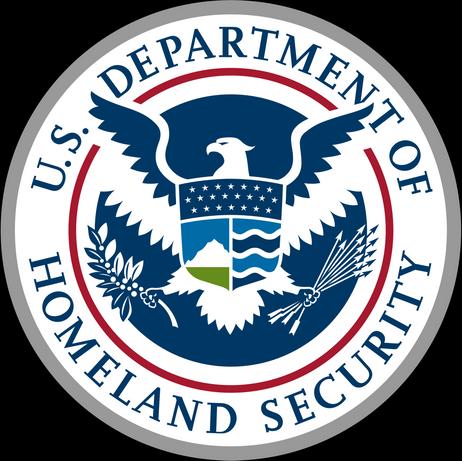The documentation required by international or non-United States students has always been extensive. As I have pointed out many times, if you are not an American citizen and are living outside the United States of America, and you wish to attend a boarding school in the U.S., you need to start the process at least 18 months in advance of the date of your first class. See the College Application Timeline on International Student for a detailed timeline. While the article discusses how to apply to American universities, the process is the same for students applying to American private K-12 schools
Additional documentation
What is being adhered to more strictly is a policy which dates back to the Obama administration. This policy requires that applicants for U.S. visas furnish their social media usernames. U.S. Requiring Social Media Information From Visa Applicants in the New York Times gives an overview of the changes. An update to the Privacy Act of 1974; System of Records was published on September 18, 2017. Specifically, it adds the following clause: "Social media handles and aliases, associated identifiable information, and search results"
This video discusses how the US Border Patrol now requires all immigrants to provide social media logins and passwords, phone records going back 5 years, and other details.
How does this impact your child's student visa application? It means that your child will have to furnish the handles or names which he uses on his Facebook, Twitter, WhatsApp, and Snapchat accounts, to name the more common social media sites which the consular officer is likely to examine when he processes your child's application. While it is virtually impossible to know what the immigration officials will look for when they review your child's social media sites, it makes sense to discuss this visa requirement in detail with your child. She should purge any photos or posts which might be misinterpreted by the consular official. Put another way, if she would be embarrassed to show the photo or post to her grandparents, then it should be and must be purged. As far as I can tell, U.S. consular officials tend to be a conservative lot who will not look kindly on radical ideas. Your child will be representing you and your country. Make the best impression possible.
What will they look for?
Besides reviewing your child's social media activity, the consular officer will be reviewing your child's contacts and friends on his various social media sites. Once again, make sure that your child isn't contacting people or organizations with radical beliefs. I recomment that you and your child examine your child's contacts and photos on his smartphone together. If he acts defiant or states that you are invading his privacy, gently but firmly remind him that the U.S. Immigration officer will do precisely the same thing. If the officer finds anything questionable, your child will not be allowed to enter the United States. Your child needs to understand how serious this issue of contacts and photos is.
This video explains how the immigration officer are legally permitted to look at your social media sites.
Inspection of handheld devices and computers
The U.S. Customs and Border Protection officers can inspect all your child's electronic devices. They can even seize those devices to inspect them. If and when that happens, your child will have to furnish passwords to the USCBP officer so that she can access your child's electronic devices. Inspection of Electronic Devices explains how this process works.
Review of the steps to study at an American private school.
1. Identify schools which are Student and Exchange Visitor Program (SEVP)-certified schools using the Study in the States page on the Homeland Security site.
2. Apply to two or three schools in the normal manner.
3. The school which admits you will issue a Form I-20.
4. Once you receive the Form I-20, you must schedule your interview with the U.S. embassy or consulate in your country.
5. Gather and organize all the documents which the consular officer requires.
7. If you live in a country where the U.S. consular officers are known to be very tough on visa applicants, such as Mexico, for example, consider hiring a competent immigration attorney to work with you and represent you. The consular officer can and will reject a visa application for any missing information on the application. He will also reject an application if your child does not answer the officer's questions to his satisfaction. The interview can be a nerve-wracking experience. That is why engaging an attorney may be helpful.
8. Read Five Ways to Prepare for Your Visa Interview.
9. Once the F-1 Visa has been granted, study the information contained in the tab entitled Arriving on Pre-Student Process Steps: How to Navigate the U.S. Immigration System
10. Make copies of all documentation, including your passport, supporting financial information, and your visa. Leave one copy at home with your family. Bring the original documents and copies with you. Do not put any documentation in your luggage. Keep it in your backpack or attache case so that it is easily accessible when the immigration officer asks for it when your child enters the United States.
11. Rehearse the entry process which your child will have to deal with by himself at the airport. She will be less nervous if she knows how to answer the officer's questions and what to expect during the entry process.
In this video, Attorney Raluca Hanea talks about: the new State Department policy about providing your social media information; when it went into effect; what information you need to provide, and more.
Some tips
Travel to a foreign country with your child. The purpose of this visit is to familiarize her with immigration and customs procedures. This visit will build her confidence for the trip to her new school in the United States.
Teach her how to use credit and cards responsibly. You will be able to monitor her finances remotely. Take appropriate action as necessary to add more funds or reprove him if he is overspending.
Discuss how to handle emergencies and health issues. Walk through all the steps involved when such situations arise. Remember that your child has always relied on your guidance, intuition, and wise counsel. She will be on her own or at least will feel as though she is on her own.
Start the entire process of sending your child off to school in the United States as far in advance as you possibly can. 18 months is not too soon as you will quickly find out.
Questions? Contact us on Facebook. @privateschoolreview













